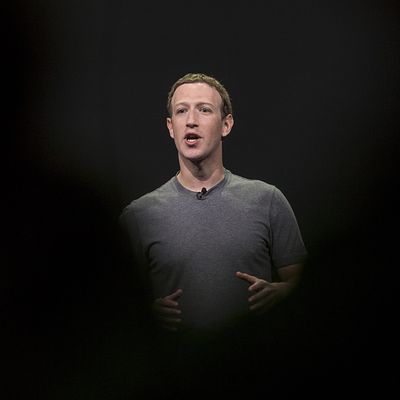
Waiting days before addressing a major scandal involving Facebook, Mark Zuckerberg has finally spoken out about Cambridge Analytica, the consulting firm that acquired data on more than 50 million users from a researcher years ago. “We have a responsibility to protect your data, and if we can’t then we don’t deserve to serve you,” he wrote. He also said the company was cooperating with authorities and that Cambridge Analytica had agreed to a forensic audit.
“This was a breach of trust between Kogan, Cambridge Analytica and Facebook. But it was also a breach of trust between Facebook and the people who share their data with us and expect us to protect it,” Zuck wrote. “We need to fix that.”
Zuckerberg is in a bit of a bind right now, given that this scandal shines a light not on obviously illegal practices, but on the shady and arguably invasive data collection and transfer that lies at the heart of Facebook’s business strategy. Cambridge Analytica was not an outlier when it came to siphoning Facebook data, as at least one employee has already alleged.
Rather than dwell on the past, Zuckerberg outlined data protection steps going forward. The gap that Cambridge Analytica benefited from — that users could share their friends’ data with third-party apps — was mostly closed in 2014. Still, Zuckerberg says Facebook will “conduct a full audit of any app with suspicious activity,” though what that actually means is anyone’s guess. Developers in violation will be banned and affected users will be notified (a measure Facebook has often resisted). He did not specify if the the users included in Cambridge Analytica’s dataset will be notified.
Facebook will also kill a user’s connection to an app if it lies unused for more than 3 months. In other words, if you log in to a site through Facebook once and then don’t do so again within a three-month period, the developer won’t still maintain access to your account. In addition, signing in through Facebook will only provide developers with your name, profile picture and email address — much less data than developers would receive in the past.
And lastly, users will get an audit tool as well: “In the next month, we will show everyone a tool at the top of your News Feed with the apps you’ve used and an easy way to revoke those apps’ permissions to your data.” The prime news feed placement is important. In contrast, the tool Facebook released a few months ago to allow users to see if they had interacted with accounts tied to the Internet Research Agency was buried in the site’s Help section. The new tool will roll out in the next month.
Taken as a whole, the measures show an effort towards transparency that Facebook has, in the past, shied away from. At the very least, Zuckerberg is aware of Facebook’s dwindling trustworthiness, and parts of it are technical in a way Facebook often tries to avoid.
And as usual, Zuckerberg closed on a note about “community.”
“I started Facebook, and at the end of the day I’m responsible for what happens on our platform. I’m serious about doing what it takes to protect our community,” he wrote, adding ” I want to thank all of you who continue to believe in our mission and work to build this community together.”
Well, at least he didn’t say anything about “time well spent.” You can read the full statement embedded below.





























